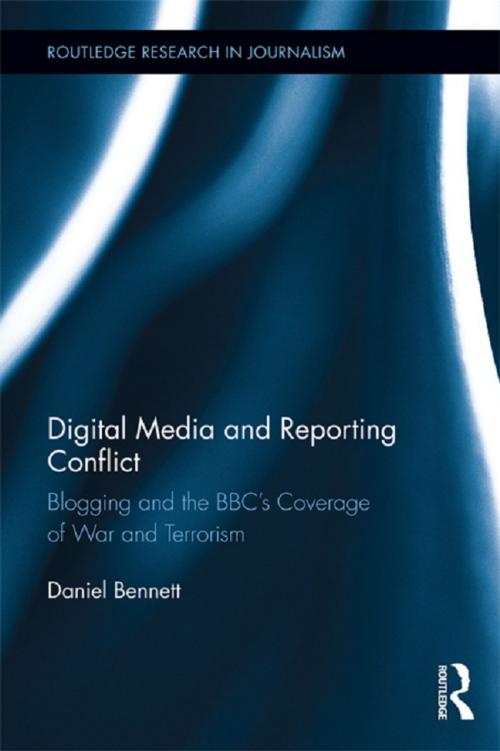Digital Media and Reporting Conflict
Blogging and the BBC’s Coverage of War and Terrorism
Nonfiction, Computers, Internet, Web Development, Electronic Publishing, Social & Cultural Studies, Political Science, Social Science| Author: | Daniel Bennett | ISBN: | 9781136688072 |
| Publisher: | Taylor and Francis | Publication: | July 18, 2013 |
| Imprint: | Routledge | Language: | English |
| Author: | Daniel Bennett |
| ISBN: | 9781136688072 |
| Publisher: | Taylor and Francis |
| Publication: | July 18, 2013 |
| Imprint: | Routledge |
| Language: | English |
This book explores the impact of new forms of online reporting on the BBC’s coverage of war and terrorism. Informed by the views of over 100 BBC staff at all levels of the corporation, Bennett captures journalists’ shifting attitudes towards blogs and internet sources used to cover wars and other conflicts. He argues that the BBC’s practices and values are fundamentally evolving in response to the challenges of immediate digital publication. Ongoing challenges for journalism in the online media environment are identified: maintaining impartiality in the face of calls for more open personal journalism; ensuring accuracy when the power of the "former audience" allows news to break at speed; and overcoming the limits of the scale of the BBC’s news operation in order to meet the demands to present news as conversation.
While the focus of the book is on the BBC’s coverage of war and terrorism, the conclusions are more widely relevant to the evolving practice of journalism at traditional media organizations as they grapple with a revolution in publication.
This book explores the impact of new forms of online reporting on the BBC’s coverage of war and terrorism. Informed by the views of over 100 BBC staff at all levels of the corporation, Bennett captures journalists’ shifting attitudes towards blogs and internet sources used to cover wars and other conflicts. He argues that the BBC’s practices and values are fundamentally evolving in response to the challenges of immediate digital publication. Ongoing challenges for journalism in the online media environment are identified: maintaining impartiality in the face of calls for more open personal journalism; ensuring accuracy when the power of the "former audience" allows news to break at speed; and overcoming the limits of the scale of the BBC’s news operation in order to meet the demands to present news as conversation.
While the focus of the book is on the BBC’s coverage of war and terrorism, the conclusions are more widely relevant to the evolving practice of journalism at traditional media organizations as they grapple with a revolution in publication.















